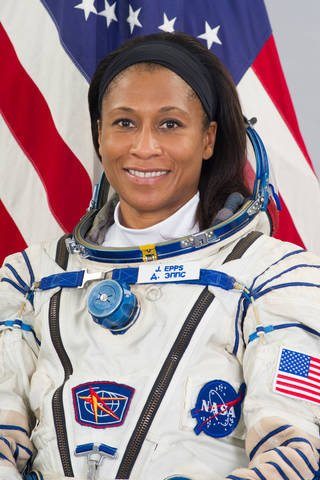Though we all agree on the fact that Nigerian-born Wendy Okolo’s achievements are praiseworthy and stellar, it turns out that the media has repeatedly overrated her achievements in the domain of aerospace engineering.
Named the 2019 Most Promising Engineer by the United States government, Wendy Okolo was crowned winner of the coveted Black Engineer of the Year Awards, BEYA, for her accomplishments. Due to her startling success in a particularly male-dominated sector, the media on several occasion tagged her as the first-ever black woman to obtained a doctorate degree in Aerospace Engineering.

Dozens of reports described Dr. Wendy Okolo, who bagged her BSc and PhD degrees in aerospace engineering in 2010 and 2015 respectively, as the first-ever black woman to do so.
However, we have now gathered that the researcher with the National Aeronautics and Space Administration, NASA, who did obtain her PhD at age 26, is not the first black woman to break grounds in aerospace engineering.
Data from NASA revealed that someone did so 15 years before her, and even has more groundbreaking achievements which ought to be trending.
Meet Jeanette Jo Epps, Astronaut, and Aquanaut

From working with car manufacturing giant, Ford, to spending seven and a half years with the CIA serving in Iraq, Jeanette J. Epps born November 3, 1970, in Syracuse, New York is probably among the first black women to obtain a PhD in aerospace engineering.
Obtaining her Master of Science in 1994 and Doctorate of Philosophy in Aerospace Engineering in 2000, from the University of Maryland, Jeanette Epps was on track to set records.
Selected in 2009 and confirmed in 2011 as a full astronaut after completing all her training, Jeanette was set to be the first black woman and crew member on board the International Space station as well as the first black to live in space.
On January 4, 2017, NASA announced that Epps would be assigned as a flight engineer to the International Space Station in mid-2018 for Expeditions 56 and 57, becoming the first African American space station crew member and the 15th African American to fly in space.
She would have been the 15th black astronaut in space, the fourth black woman, and the first black astronaut (male or female) to work aboard the International Space Station.

Though she had previous spaceflight experiences, disappointedly, on January 16, 2018, NASA replaced Epps saying she would “be considered for assignment to future missions”.
According to Up/Close, “Epps’ brother Henry posted a statement on Facebook, since deleted, that “My sister Dr. Jeannette Epps has been fighting against oppressive racism and misogyny in NASA and now they are holding her back and allowing a Caucasian Astronaut to take her place!”
“Jeanette Epps stated that she could not comment on her brother’s post or the reason why she was pulled off the mission but did state that she has no medical condition or family problem preventing her from flying, and that her training had been successful.”
We gathered that this is not the first time NASA is facing accusations of favoritism.
Today, she continues with her career as an astronaut with NASA at Johnson Space Center, Houston-Texas.
Awards/Honors:
According to her information provided by the National Aeronautics and Space Administration, NASA, Jeanette who on several occasions has been a NASA GSRP Fellow has received several distinctions among them; Exceptional Performance Award 2003, 2004 and 2008.
Inducted into the University of Maryland, Department of Aerospace Engineering, Academy of Distinguished Alumni 2012; JSC Director’s Innovation Group Achievement Award to Improving Efficiency on the ISS Team 2013, Recipient of the Glenn L. Martin Medal from the A. James Clark School of Engineering, University of Maryland, 2014. In 2016, she was awarded an honorary Doctorate of Humane Letters from LeMoyne College.










